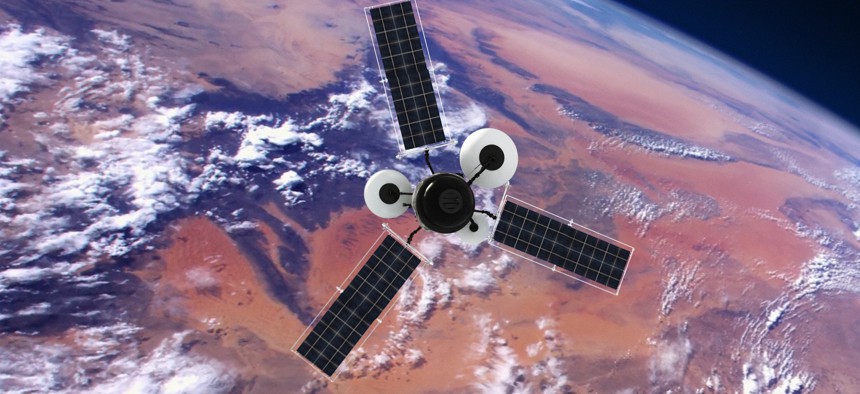Lawmakers worry about cyber risks in space

Getty Images
Senators questioned the commanders of Space Command and Strategic Command on their plans to handle an increase in space-based threats.
Lawmakers are raising concerns about the vulnerability U.S. satellites may have to electronic and cyberattacks from foreign actors as geopolitical tensions increase.
During a March 8 Senate Armed Services hearing Sen. Jacky Rosen (D-Nev.) questioned whether "increasing threats of cyberattack from Russia could jeopardize our U.S. space operations" as Russia prosecutes its invasion of Ukraine.
Gen. James Dickinson, commander of U.S. Space Command said the command has "taken a lot of effort to ensure that we are cyber hardened and that we've got the right types of experts looking at our systems, our vital space systems" and that the command has built-in "cyber expertise" in its headquarters.
"We've got an integrated planning element from…CYBERCOM embedded with us. And then two of my five service components are dual hatted as not only Space Command, but also CYBERCOM. So that's kind of the structural piece," Dickinson said at the hearing.
But for Sen. Angus King (I-Maine), that wasn't enough. "I would urge you to add to that structure a red team. Ask [Cyber Command commanding general] Paul Nakasone to attack you and see how it goes," King suggested for Strategic Command, which operates nuclear command, control, and communications satellites, and Space Command to improve satellites' cyber resiliency.
Beyond malware and other cyber threats, Dickinson is also concerned about other vectors of attack against U.S. satellites.
"Non-kinetic, reversible solutions—to include space electronic warfare and cyberspace capabilities are critical in achieving space superiority and controlling conflict escalations. They directly affect our ability to deter malign behavior, and to complicate our competitors' ability to threaten our space assets," Dickinson wrote in submitted testimony.
Additionally, Space Command is working with the intelligence community to counter growing electronic and cyber threats by exploring "a testbed to assess new jam and spoof resistant waveforms for all satellite telemetry, tracking, and command," Dickinson wrote.
Electronic attacks were also mentioned in the intelligence community's recently released annual worldwide threat report, which specifically named Russia's investments in "electronic warfare and directed energy weapons to counter western on-orbit assets" by "disrupting or disabling adversary C4ISR capabilities," including radars, GPS, and tactical and satellite communications.
Dickinson also said in written testimony that anti-satellite weaponry tested by China and Russia were an attempt "to blunt U.S. influence, deter, and counter a possible U.S. response during conflict or crisis."
"These counterspace capabilities include cyber, electronic warfare, directed-energy weapons, anti-satellite missiles and space-based weapons, which enables our competitors to achieve a range of effects. These effects range from degrading space services temporarily to damaging or destroying satellites permanently in and through space that jeopardize our capabilities in other domains."
That concern was top of mind for Chairman Sen. Jack Reed (D-R.I.), who noted that Russia destroyed a satellite via missile launch in a November weapons test. That test demonstrated ongoing risks to U.S. space assets during armed conflict.
"In any future conflict, China will quickly extend its capabilities into space in a seamless fashion. Russia, for its part, acted recklessly in November by destroying a satellite in space while building up forces on the Ukrainian border," Reed said.

